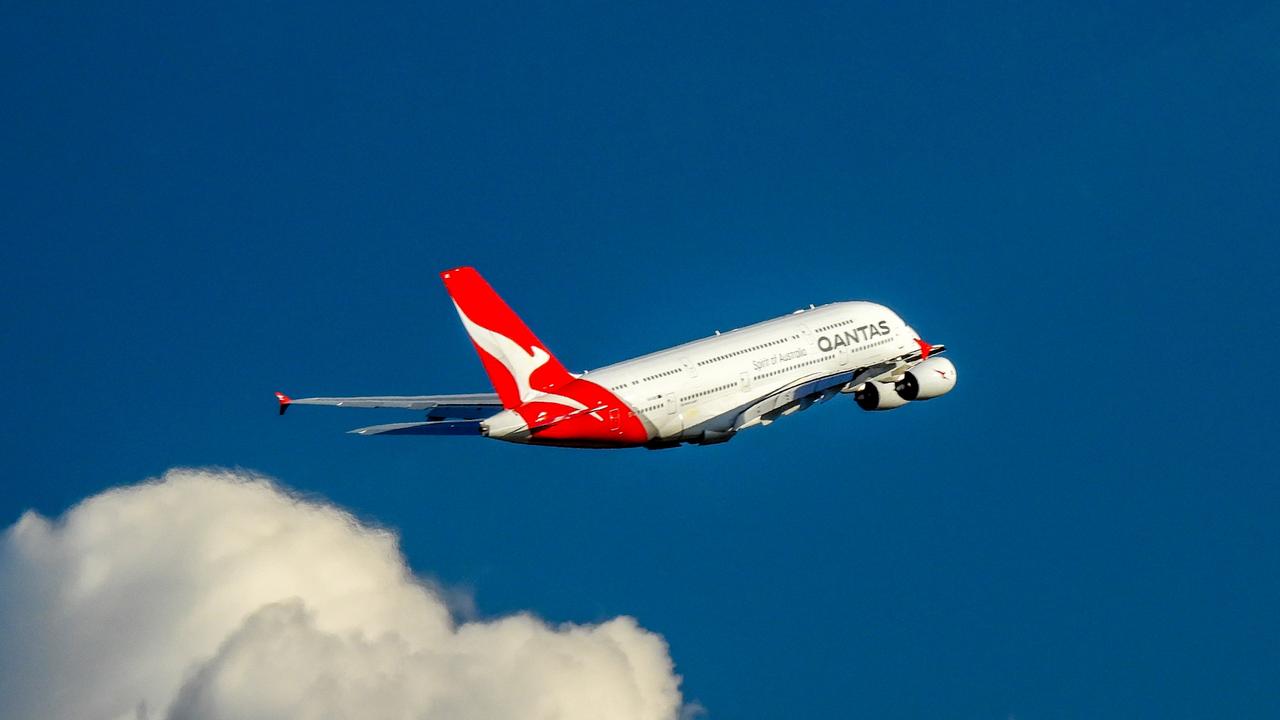Companies feeling the heat at AGMs as investors revolt
Cost-of-living pressures and simply being fed up with a litany of corporate failures has triggered shareholder fury at some of Australia’s best-known companies.
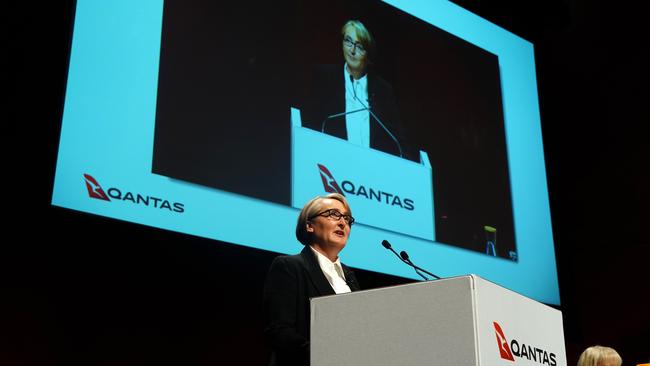
Business
Don't miss out on the headlines from Business. Followed categories will be added to My News.
Cost-of-living pressures and simply being fed up with a litany of corporate failures has triggered shareholder revolts against some of Australia’s best-known companies, such as Qantas, Woolworths, Tabcorp, Whitehaven Coal, and Magellan Financial Group.
These companies received a so-called “first strike” against their remuneration reports at their annual general meetings, with more than 25 per cent of investors voting against them. If they receive a second strike their boards face a spill motion where all may lose their roles.
It’s what former prime minister Tony Abbott might well call a shirt-fronting. Shareholders are taking their frustrations to their companies – wanting to know why their investments are either losing value, or aren’t returning money, or are treating customers badly and not protecting their staff. All while chief executives are taking home double-digit millions of dollars each year.
“Every now and then there’s crystallisation of shareholders really wanting to take it to companies and when the markets are not up, it focuses their distress,” says Fiona Balzer, policy and advocacy manager from the Australian Shareholders’ Association. “They’re happier when the economy is going well, rather than when they’re worried about their income going forward and the cost of living.”

Just this past week, the Reserve Bank of Australia increased the cash rate to 4.35 per cent — the 13th hike since May last year to what is now the highest rate in more than a decade. It came as inflation remains stickily high.
Balzer is seeing a wall of worry from people having to draw down on their pensions, or are starting to fear their investment portfolios won’t be enough for their retirement.
“Some people worry, some people fret, some become more strident in their engagement with companies because they need to provide them with the next 20 to 30 years of income or potential retirement and 20 to 30 years. It’s a reminder to them that it’s not okay. They have to sit down and do the job.”
Mum and dad investors aren’t the only ones taking it to the companies. Active institutional investors are finding it increasingly hard to outperform cheaper exchange traded funds and so more are leaning in to take the fight to companies failing to deliver.

Proxy and governance risk adviser Dean Paatsch, from Ownership Matters, said it is too early in the AGM season to know whether this year will be as active among investors as 2009, when shareholders really took it to underperforming companies following the global financial crisis.
Clearly though, they believe so-called short and long-term incentive schemes for executives need to be based on real turnarounds in performance rather than stop-gap measures to prop up share prices so executive share options can vest.
“From a fund manager’s perspective, it is difficult to outperform, so they very acutely feel the disconnect in performance,” says Paatsch. “They are struggling to outperform but they see executives rewarded with real salaries and bonuses.”
The figures certainly are real. Qantas’s Alan Joyce stands to take home $21.4m, Woolworths CEO Brad Banducci has $11.7m, Whitehaven Coal CEO Paul Flynn is looking at a $10m cheque, Tabcorp CEO Adam Rytenskild could take home as much as $6.75m, and Magellan’s short-lived CEO David George took home at least $2.4m in his only full year despite seeing profit and share price plummet.
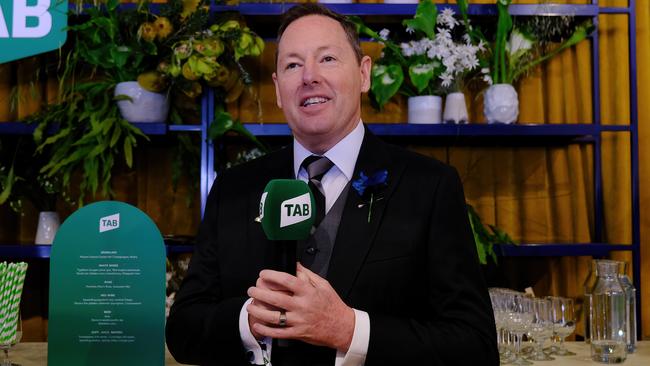
These are companies that have failed to perform on at least one significant measure, and yet they are paying themselves heaps of money.
In recent weeks AMP, Dexus, and Treasury Wines were also dealt shareholder strikes, and the remuneration reports of Woodside, Star Resorts, ASX Limited and CSL only just got across the line.
Paatsch’s firm was active in campaigning against a number of remuneration reports, including Qantas and Tabcorp, and said it’s important to drill home to companies that if they don’t meet expectations they should not be getting paid massive sums of money.
“This is the capitalist project working,” says Paatsch. Fund managers “are using every tool in the toolbox to try and unlock alpha and I think there’s been a slow appreciation that incentives determine behaviours. So if executives are being rewarded for things that don’t drive real performance, then nothing will change.”
The failures making shareholders angry are many and varied. For Qantas it’s been a mixture of poor customer service, illegally firing staff, making it extremely difficult to use flight credits from Covid-cancelled trips and paying its chief executive exorbitant sums of money.
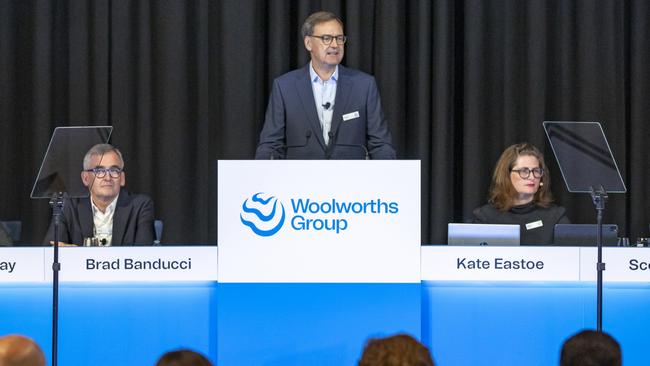
At Woolworths, investors were horrified by massive pay cheques in the wake of the recent deaths of two Woolworths workers, and the corporate civil war within drinks and pubs giant Endeavour, which the supermarket giant still has a shareholding in.
At Whitehaven, there has been a demand for shareholder returns rather than continued spending on takeovers.
Embattled fund manager Magellan is on the nose because its funds under management has slumped from more than $100bn to just over $34m and its profits and share price have tumbled.
And at gambling giant Tabcorp, investors can’t understand that the firm’s market capitalisation has shrunk some 77 per cent following the demerger with The Lotteries Corp, yet CEO remuneration is down only around 10 per cent.
“If incentives are continuing to pay out despite company performance, it‘s very difficult to obscure that,” says Paatsch. “We have full transparency of performance and we have full transparency of executive pay.”
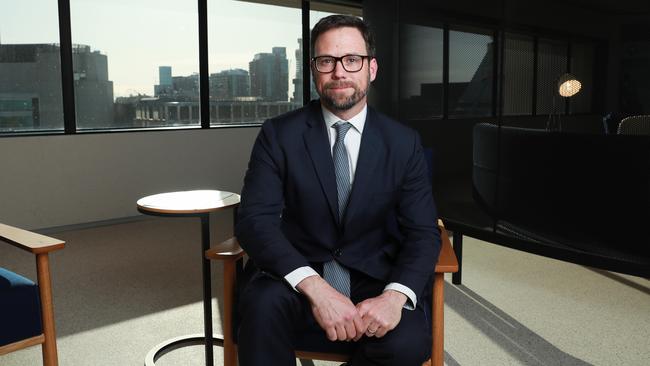
Just how big a wave of activist action companies will see in the form of strikes against their remuneration this season will be clear by the end of this month. Public companies must hold their annual general meeting within five months of the end of their financial year, which is usually June 30.
And for those that have or are about to suffer a strike on remuneration?
In order to avoid a second strike at their next AGM and trigger a spill of the board, they will need to listen to their investor base – the people that provide them the capital to operate.
Some may demand governance changes, or changes to how bonuses are linked to company performance, or a better focus on returning money to shareholders, or where company performance has been very poor, concessions on board renewal as well.
“The providers of capital are saying these are our expectations or you’re not meeting them. We want you to do better,” says Paatsch. “It’s a gentle nudge, but it can be effective.”
More Coverage
Originally published as Companies feeling the heat at AGMs as investors revolt





